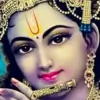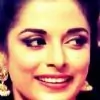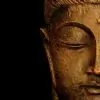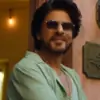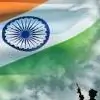Like most people, Karna wants to be somebody'. It must have hurt to sit in the stands at the tournament, ignored, as Arjuna enjoyed the admiration of the world. Later, when his own skill is discovered and he is praised by the crowd, Karna begins to feel worthy. Anxiety about one's place in the world tends to distort one's character. It makes Karna excessively proud. Like Achilles in the Iliad, he refuses to fight at the beginning of the war because he has been slighted by Bhishma.17 Status anxiety also makes him boastful and self-promoting, something that does not go down well with the noblemen of the old school. Bhishma chides him, Although [Karna] always boasts, saying "I shall slay the Pandavas", he doesn't possess even a small part of the Pandavas' great soul.'18 Kripa, the instructor of martial arts, finds him exasperating, Son of a charioteer, you growl like an autumn cloud that is without water!'19 To which Karna replies good-naturedly, Heroes always thunder like storm clouds in the monsoon, but like a seed dropped to the earth in the [rainy] season they quickly bear fruit.'20 Boasting is, of course, a critical part of heroic poetry. A noble hero is expected to show pride and disdain in order to evoke the heroic rasa, mood'.21 But Karna also boasts in order to to be observed, to be attended to, to be taken notice of with sympathy, complacency and approbation'.22 The attention of other people matters because human beings are uncertain of their own worth.
The writer Alain de Botton explains that our sense of identity is held hostage to the opinion of others: We may not admit it, but the truth is that we all seek to be loved by the world. When we are babies, we are loved whether we burp or scream or break our toys. But as we grow up, we are suddenly thrown into a world where people judge us by our achievements or our status (rather than as our mothers did). Hence our anxiety about how we are perceived. No human being is immune from this weakness.'23 The ego (ahamkara, theI-maker') is a leaky balloon, forever requiring helium of external love to remain inflated, and ever vulnerable to the smallest pinpricks of neglect. There is something at once sobering and absurd in the extent to which we are lifted by the attentions of others and sunk by their disregard.'24 Even great heroes like Yudhishthira and Arjuna are guilty of this sort of vanity.
In feudal societies, people worried less about their social position. Status was determined at birth and there was little hope for moving upwards. Indeed, if Karna had not possessed outstanding talent and a burning ambition, he might have led a reasonably well-adjusted life as a charioteer's son. But he was a kshatriya warrior who, the epic tells us, had an inborn svabhava, natural inclination', for a heroic life. He wanted to learn the use of the Brahmastra, the highest martial art. Even when Drona told him that only a brahmin or a kshatriya was permitted to learn it, Karna did not give up. He was driven to realize his natural potential.
Karna's search for his identity reminds one of the terrible mistake that society makes in forcing individuals to privilege one identity over all the others. Karna has many identities: he is a caring son, an outstanding warrior, a father, a husband, an extremely generous person, a loyal friend of Duryodhana's. Why must his father's background trump his many rich"perhaps, far richer"identities and become the sole basis of his status in society?
Das, Gurcharan (2010-09-03). The Difficulty of Being Good:On the Subtle Art of Dharma (Kindle Locations 3161-3172). Oxford University Press. Kindle Edition.



